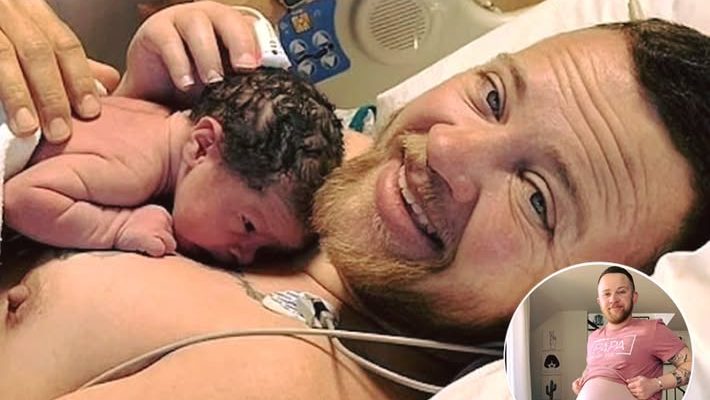
Respecting individuals by using their chosen names and pronouns is widely recognized as a basic way to affirm their identity, regardless of whether they are straight, gay, or transgender. Yet, some people still hold onto traditional views or ignore others’ gender identities, failing to adapt to more inclusive practices.
Bennett Kaspar-Williams, a 37-year-old from Los Angeles, experienced this firsthand. In October 2020, with the support of his husband Malik, Bennett delivered their son Hudson via cesarean section. At the time, Bennett identified as male and used he/him pronouns, though he now also uses they/them. Despite making his gender identity clear, hospital staff repeatedly referred to him as the mother, disregarding his preferences.
Bennett’s journey began in 2011 when he realized he was transgender, and he started his transition in 2014. He and Malik decided to start a family, which required Bennett to pause his testosterone treatments so his reproductive system could function again. Although he had undergone surgery on his chest, he had not had any procedures on his lower body. After careful consideration, Bennett felt comfortable with the idea of carrying a child and soon became pregnant naturally.
Their pregnancy journey, which began shortly before the COVID-19 lockdowns, was both rewarding and difficult. While Bennett found fulfillment in becoming a parent, he was deeply discouraged by the way medical staff consistently misgendered him, calling him “mom” despite his clear identification as a man. He explained that the only aspect of pregnancy that caused him distress was being misgendered by healthcare providers.

Even though Bennett marked his gender as male on medical forms, staff continued to address him as a mother. Since Hudson’s birth, Bennett has spoken out about the need to separate the concept of childbirth from gender, emphasizing that giving birth is not inherently tied to womanhood. He has highlighted how the healthcare system’s focus on “motherhood” makes it difficult for people who do not identify as women to be recognized for who they are.
Bennett has argued that not everyone with a uterus can or will become a mother, and not everyone who gives birth identifies as a woman. He believes it is essential to move away from equating womanhood with motherhood, as this excludes many people’s experiences and identities.
By sharing his story, Bennett Kaspar-Williams aims to raise awareness about the complexities of gender and parenthood, and to advocate for greater respect for everyone’s self-identification.



